uL

Chris Johnson is the manager of MyCareerTools, a website which provides information and practice tests to people trying to advance their education in order to improve their career opportunities. We recently spoke with Chris about the advantages of online education and how this field will grow in the future.
Tell us a little about yourself. Why are you so passionate about continuing education?
I am responsible for managing the My Career Tools website, where we help students to optimize their career path. For us here at My Career Tools, continuing education means upgrading your education, honing your skills, and learning new specializations to create new career possibilities.
How has online learning simplified the process of continuing education as compared to years past?
Online education is here to stay; and nowadays it can be delivered on a desktop, laptop, tablet, or smartphone. The way I’m seeing it, online learning will grow exponentially in the future.
While online learning may be new to many in the baby-boom generation, younger students have already been doing this for a long time. For them, online learning became an accepted method many years ago. Online learning is about the students just as much as the content, and technological developments have allowed us to develop enjoyable and memorable learning experiences. As a result, students are remembering the study content far better.
Other than improving career prospects, what are some other advantages to completing continuing education courses?
Today, online learning options allow an immediate-gratification learning experience. Online learning immediately teaches students the things they need to know, and is generally so interesting that students understand and remember the lessons after just a couple of minutes (this is what experts called “microlearning”). For that reason, continuing education courses through online delivery have become very popular, and most courses are open to every interested individual. Online courses allow people to not only enhance their careers, but also to improve their lifestyle skills and the quality of their lives.
Where do you see the future of continuing education in the next few years?
In the short term, I foresee that in the next few years online learning will increasingly include more:
1. Adaptive learning – This a technology-driven learning method that uses learning technology that adapts the presentation of the study material to the individual learner. This method is usually directed by learning data obtained through study analytics. Adaptive learning functions like a sort of artificial and intelligent tutor. Modern technology allows the tools to learn the way in (and the level at) which students learn. The presented learning material is adapted to each individual learner.
2. Virtual Reality – Through virtual reality, students can visit places that they cannot physically access. They will be able to visit ancient times, historical sites, submarine life, monuments, other continents, or even outer space. Virtual reality can take science and history into the classroom and take learning to the next level.
3. Gamification – Experts are convinced that by using gaming technology and mechanics, many other non-gaming settings will benefit. This development will definitely result in amazing outcomes, and will motivate students even further to reach their goals. Gamification offers a lot of potential for new strategies to enhance the engagement of students with the study material; and some education experts are convinced that this exciting technique will boost students’ motivation to a stunning recall rate of up to 90 percent. By 2020, the gamification industry is expected to involve some $10 billion.
What advice would you give someone who is unsure about (or dissatisfied with) his or her career choice?
They can find quite a few career quizzes, both offline and online, and it would surely help if they would take a few career tests to discover which career tracks will suit them. Many studies have shown that students who used career quizzes for self-assessment purposes together with professional advice achieve much better results when it comes to completing their career training or college graduation goals.
Scientists say that students who took a few career assessments have “a higher career decision self-efficacy level.” In plain English, if they take a career assessment test, they are expected to make better decisions related to their future careers, and this will result in more effective study results and better career development.
Ready to learn something new to help further your career? Check out our open courses today!
